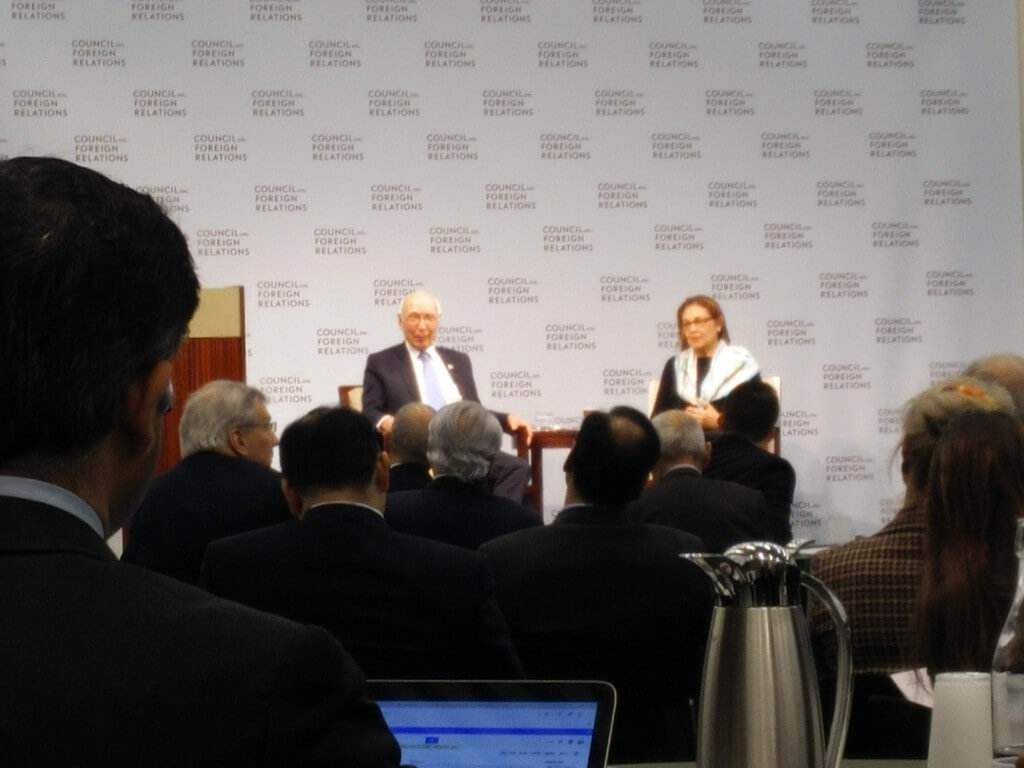
WASHINGTON — As Pakistan’s policy toward terrorism hardened due to domestic attacks that killed hundreds of its citizens, its relations with the U.S. have been repaired from damage caused by the U.S. unilateral mission to kill Osama bin Laden in Abbottabad, Pakistan’s top foreign policy adviser said Tuesday.
Sartaj Aziz, Pakistan’s foreign affairs adviser to Prime Minister Nawaz Sharif, said his country’s views of terrorism have “turned a corner” since the “game-changer” 2014 Peshawar school massacre in which the Pakistani Taliban killed more than 130 children at a school.
“It unified the nation against terrorism,” he said in a talk at the Council on Foreign Relations. “Before that we did not have a total political consensus against terrorism…But after that incident, all of the political parties came together and they joined hands and said ‘enough is enough.’”
Many of Pakistan’s problems have stemmed from fighting other people’s wars, Aziz said. Pakistan has now adopted a policy of non-interference and no longer plans to engage in sectarian conflicts in neighboring Afghanistan and elsewhere in the Middle East.
“Hopefully in the next year or two, we’ll be one of the outstanding examples of a country that has been able to control terrorism within its borders,” Aziz said.
Aziz said Pakistan and the U.S.– whose relations Secretary of State John Kerry has helped restore — share a desire for a peaceful Middle East and Southeast Asia. Pakistan will not take sides in its neighbors’ affairs and hopes to play a positive role in bridging divides, Aziz said. Pakistan cannot improve its own economy if it does not have better relations with its neighbors.
“We must look after our own country and our own economy,” Aziz said.
Aziz also said the democracy in Pakistan is getting stronger. He cited an independent judiciary, strong civil society, education- and a free media as areas where democracy is taking rootin Pakistan.


